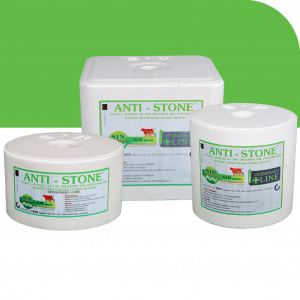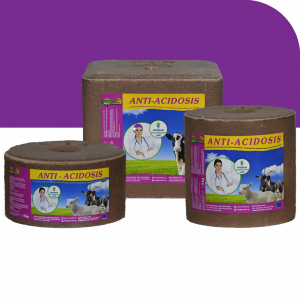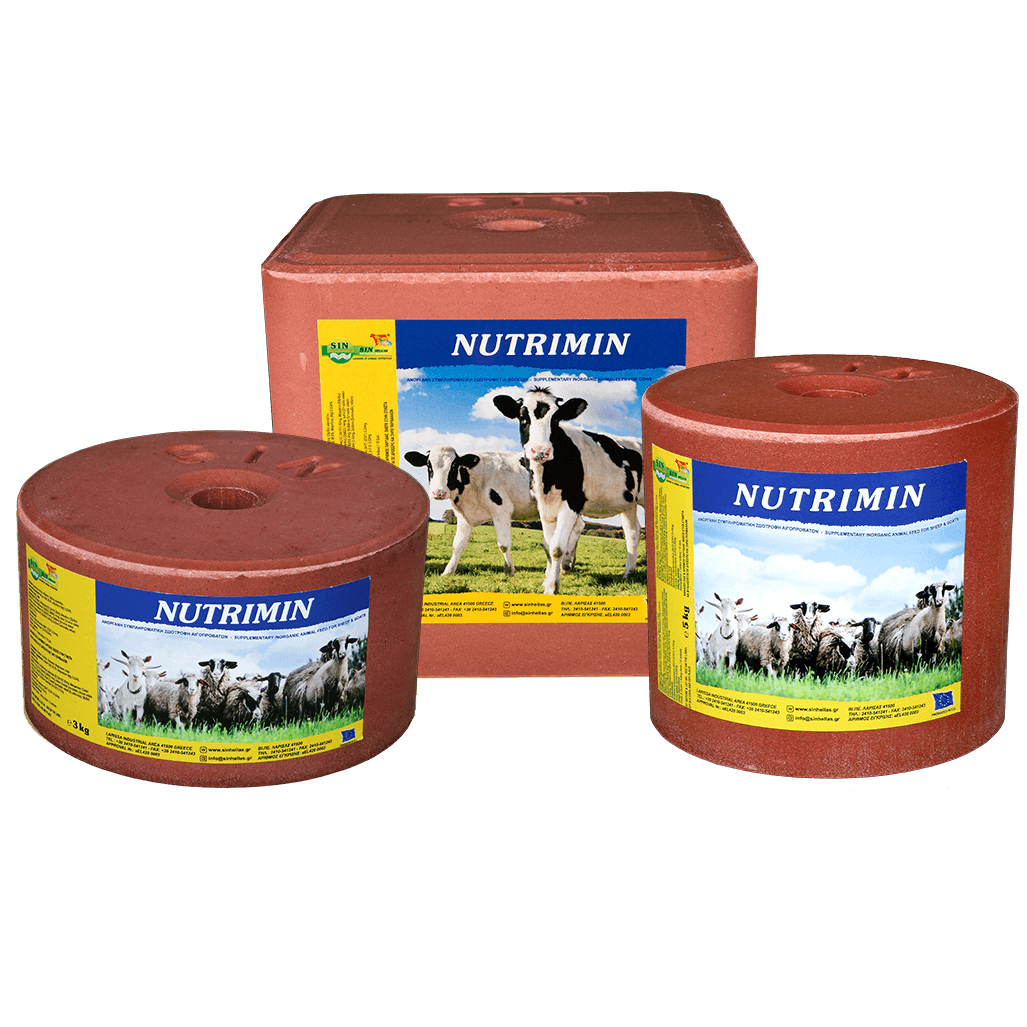
NUTRIMIN
Trace Elements Licking Blocks
Trace Elements









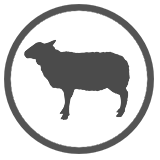
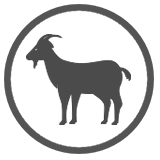
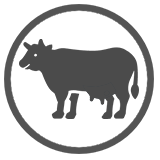
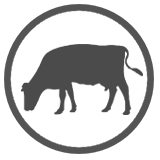
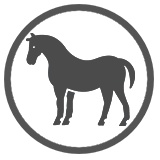
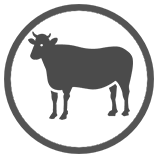
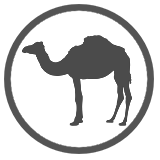
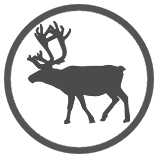

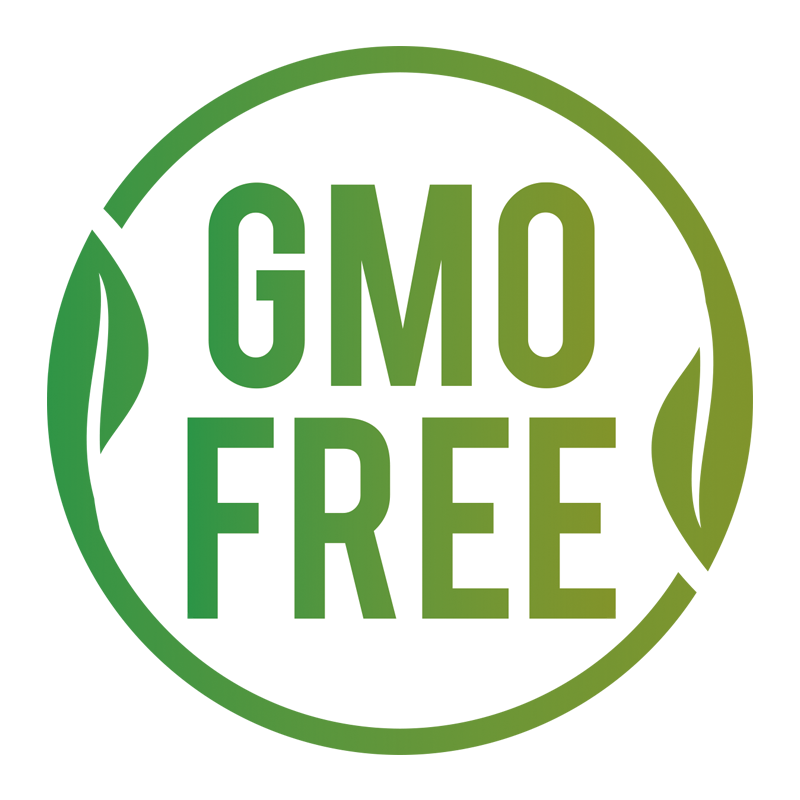

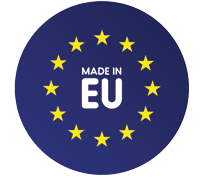
- Appetite Increasement
- Weight Inceasement
- Body Fluids Adjustment
Benefits
Salt and Trace Elements are an essential part of the daily diet of all animals for best performance and productivity. NUTRIMIN enriches the daily diet with salt and trace elements which contribute significantly in the increasement of animal' s productivity and also in their health improvememnt.
Nutrition Facts
Analytical Ingredients / %
Sodium (Na)39%
Magnesium (Mg)1%
Calcium (Ca)1%
Additives mg / kg
Iron (Fe), (Sulphate monohydrate (II)) (3b103)10%
Manganese (Mn), (Oxide) (3b502)4%
Zinc (Zn), (Oxide) (3b603)3%
Iodine (I), (Coated granulated calcium iodate anhydrous) (3b203)2%
Cobalt (Co), (Coated granulated (II) carbonate) (3b304)2%
Selenium (Se), (Coated granulated selenite) (3b802)1%
Composition
Sodium Chloride, Calcium Carbonate, Magnesium Oxide, Molasses (Sugar beet)
What is improving
Cobalt
Cobalt has only one known function, which is a constituent of vitamin B12. Cobalt is required for rumen microbes to synthesize vitamin B12. Deficiency symptoms are easily confused with gross malnutrition or starvation.
Iron
Iron is essential for a wide variety of the metabolic processes of living organisms, due to its chemical transitional property. Iron is present in the different forms of heme and the iron-sulfur (Fe-S) cluster binding protein, which plays an important role in various enzymatic reactions such as aerobic respiration, TCA-cycle function and DNA synthesis as well as oxygen transport and storage. It is a substantial component of red blood cells participating to the blood's structure and improves the functioning of organs and tissues.
Sodium
Sodium is a macro element absolutely necessary for the correct body operation and function of every living creature. It is the principal cation (positive ion) of the extracellular fluids, where it is usually in combination with the chloride anion (negative ion) forming sodium chloride. Sodium is indispensable for the regulation of acid base balance and osmotic pressure. Its other main role is maintaining the membrane potential in nerve and muscle tissues thereby facilitating the generation and transmission of electrical impulses. It is met in all body's soft tissues and in all its liquids playing a lead role to the conveying of nervous stimulations and the sugar and amino acids absorption by the digestive system, controlling water balance and improving animal’s appetite.
Selenium
Selenium is a component of glutathione peroxidase, an enzyme for the removal of lipid peroxides. Selenium is very important in fertility and helps muscular development. Se is also a component of two other selenoproteins. The midpiece of sperm requires selenoprotein. Microbes in the rumen replace S with Se in their S-containing amino acid synthesis. They are absorbed in the duodenum as amino acids. White muscle disease and exudative diathesis are two Se deficiency symptoms, which can be treated with both vitamin E and Se. Deficient animals also show liver necrosis. Selenium prevents oxidative damage to tissues by offering an antioxidant action and protects against cell damage.
Iodine
Iodine’s function is as a constituent of thyroxin, a thyroid gland hormone that regulates the basal metabolic rate. Thyroid-stimulating hormone (TSH), secreted by the anterior pituitary gland, enhances the iodine uptake by the thyroid gland. Short-term deficiency leads to hypothyroidism, with reduced growth rate and reproductive problems, hair loss, and dry skin. Long-term deficiency leads to goiter. Without iodine, thyroxin cannot be synthesized. This causes the release of TSH, which in turn causes the hypertrophy of the thyroid gland.
Manganese
Manganese is concentrated in the animal bones. It is an important cofactor for many enzymes involved in energy and protein metabolism. Mn is also required for mucopolysaccharide synthesis. This is a major component in the organic matrix of bones. Consequently, deficient animals have normal tendon growth but slow bone growth. This leads to symptoms such as perosis in chicks and crooked calf in other animals.
Magnesium
Magnesium is needed for more than 300 biochemical reactions in the body. It helps to maintain normal nerve and muscle function, supports a healthy immune system, keeps the heartbeat steady, and helps bones remain strong. It also helps adjust blood glucose levels. It aids in the production of energy and protein, improves the digestibility of feed and improves the reproduction.
Zinc
Zinc is an essential nutrient for animals, functioning in enzyme systems and being involved in protein synthesis, carbohydrate metabolism, and many other biochemical reactions. A severe zinc deficiency causes numerous pathological changes, including skin parakeratosis, reduced or cessation of growth, general debility, lethargy, and increased susceptibility to infection.
Case Study
1The Role Of Minerals & Trace Elements
2Conclusion
Suitable for
Sheep, Goats, Dairy Cows, Dry Cows, Cattle / Ceef, Horse, Camel, Wild / Prey
Available Colors
Packaging

Box of 8pcs x 3kg
3kg blocks wrapped in plastic film in box of 8pcs x 3kg

Box of 4pcs x 5kg
5kg blocks wrapped in plastic film in box of 4pcs x 5kg

10kg block
10kg blocks wrapped in plastic film with handlinh




